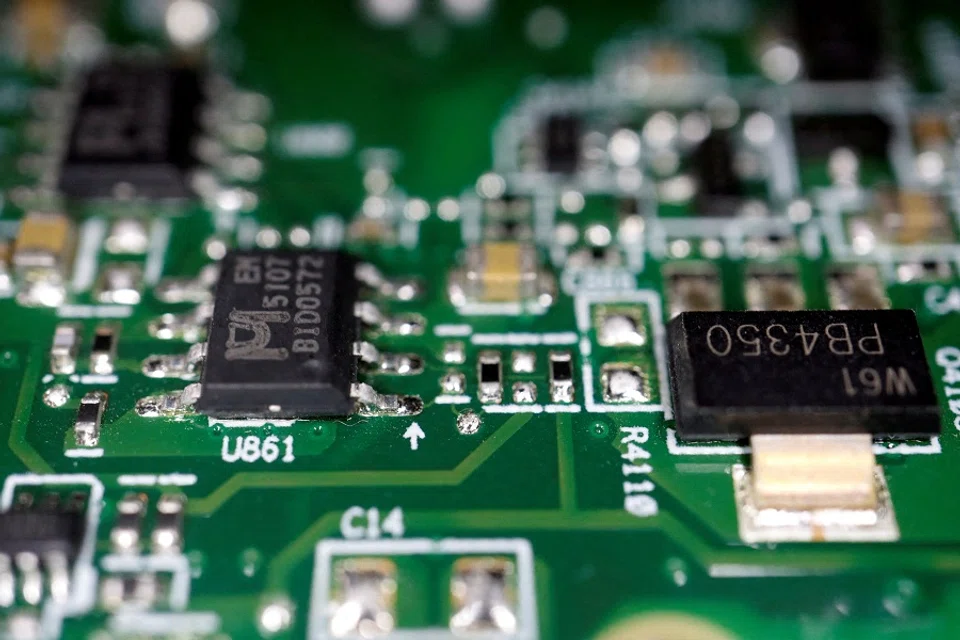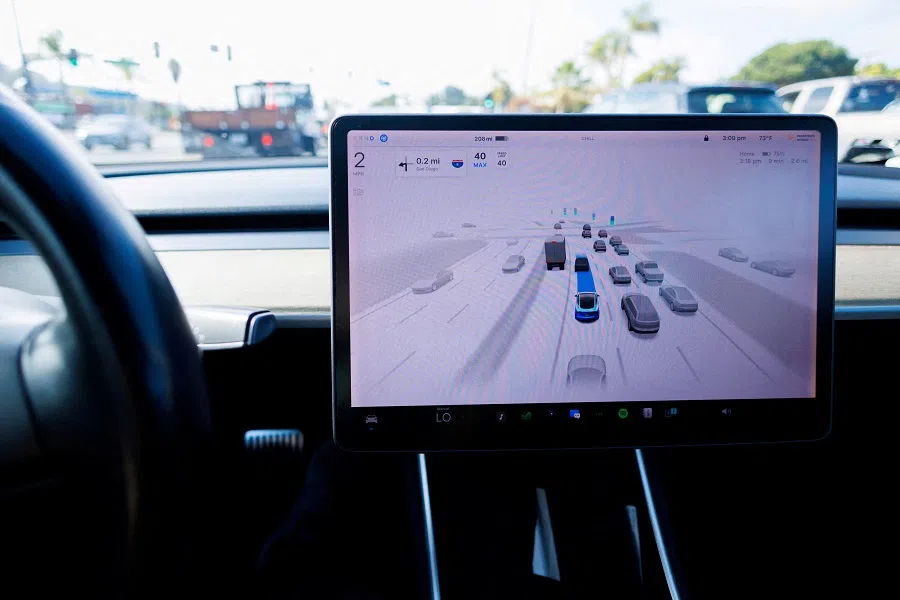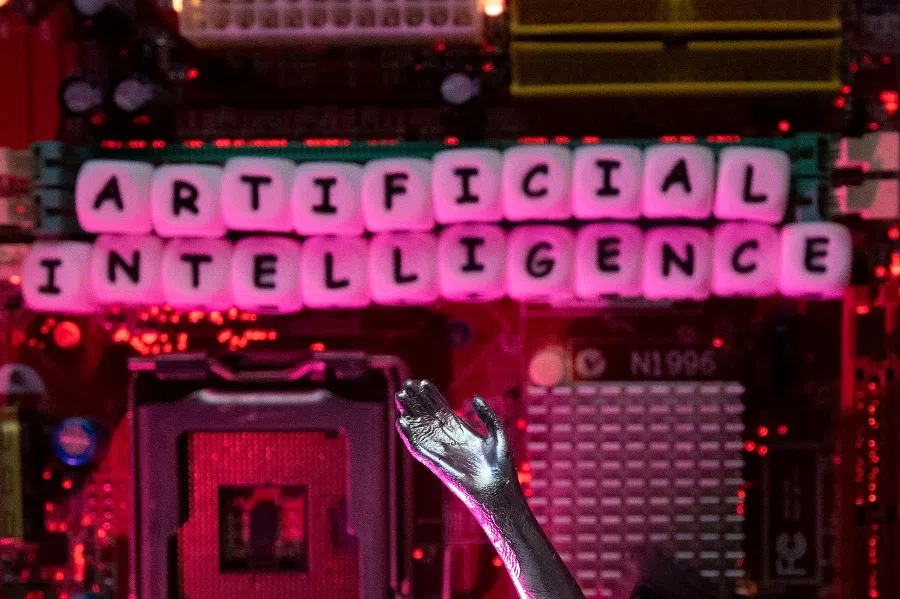In the age of AI, cognitive bias could be fatal
The pitfalls of cognitive bias would appear not only in the technology field, but also in politics and the larger global situation, says academic Yang Jun.

Regardless of our willingness to embrace it or our level of preparedness, the era of AI is already upon us and is evolving at breakneck speed. Succumbing to cognitive biases would be the most daunting error in this age, possibly leading to being left behind by the shifting tides of change.
Such cognitive biases mainly encompass two levels: firstly, they stem from entrepreneurs and politicians lacking clarity in understanding the qualitative shifts of the AI era, leading them to approach and tackle issues using traditional perspectives. They perceive it merely as an upgrade built upon the foundation of conventional computing power, akin to an auto-update for Microsoft Windows.
Take for example China’s most ambitious and innovative Wang Chuanfu, chairman of BYD; during an annual report meeting in April 2023, he criticised Tesla’s FSD (full self-driving) technology which the US firm was then about to introduce, calling autonomous driving as “akin to the emperor’s new clothes”. Wang labelled it a deceptive fad, in essence suggesting that assisted driving should be the direction for automobiles in the future.
... be it the German cars that are still stuck in the traditional fuel-powered mode, or the Chinese new energy vehicles that are fighting every second to gain market share in the global automobile industry — it is crucial that they do not first adopt a cognitive bias...
AI as necessary progress
Perhaps at that time, Wang had not fully realised how FSD represented an epochal shift towards AI application for the entire automobile industry, portending an industrial revolution for the industry.
Take the latest upgrade to FSD V12.3 end-to-end AI autonomous driving system. It no longer depends on traditional rules-based code; instead, it operates on neural networks and data-driven principles.
In other words, the FSD is a neural network that takes only 80 milliseconds for its entire computing process, while for a human the fastest reaction time is only about 150 milliseconds. A Tesla has eight cameras, akin to a human being with eight eyes, ensuring no blind spots and observing every move during driving.
Hence, this AI-powered autonomous driving technology is poised to completely surpass traditional automobiles with its advanced capabilities — much like steam locomotives or gasoline cars speeding past horse-drawn carriages.
Due to this technological confidence and advantage, Musk recently announced a free 30-day FSD use for Tesla users in the US, alongside the upcoming launch of Robotaxi (self-driving taxi) on 8 August for commercial use. These moves would greatly, if not entirely, revolutionise human travel and the transportation industry. It would also put Musk in the lead globally in terms of AI applications in automobiles, leaving his competitors in the dust.

Hence, before the AI era is entirely upon us, for automobile manufacturers — be it the German cars that are still stuck in the traditional fuel-powered mode, or the Chinese new energy vehicles that are fighting every second to gain market share in the global automobile industry — it is crucial that they do not first adopt a cognitive bias; otherwise, they are destined to be mercilessly crushed by the changing times.
Putin’s error was being absorbed in a geopolitical perspective that once flourished during the 18th century...
Cognitive bias in politics
The most classic example of a cognitive bias by politicians is when Putin launched the Russia-Ukraine war in 2022. It is indeed just as Indian Prime Minister Modi criticised — the 21st century is not an era for war, but an era for cooperation across a division of labour, and an era of deep technological development.
Putin’s error was being absorbed in a geopolitical perspective that once flourished during the 18th century, which is why he did not hesitate to become enemies with the entire Western world, and did not hesitate to throw the weight of the entire country behind his actions.
He has forgotten or neglected that in the 21st century, in arenas such as the global economy and technological competition — where battlefields do not come with gunpowder or smokes — Russia has long fallen several generations behind Europe and the US; even China has long surpassed it.

But then again, perhaps it is because Putin realises that the West and China are way ahead of Russia in these fields that he has adopted a “path dependence” model — resisting change and returning to the old ways of traditional geopolitics — fervently pursuing territorial expansion like it always has since ancient times.
But this has led to a completely asymmetric battlefield, where one side relies on outdated Cold War-era combat methods and weapons, while the other side employs modern technology-assisted satellite navigation, drone attacks, precision-guided munitions, and high-precision air defence equipment. As a result, the latter possesses nearly unrivalled battlefield awareness, precision strikes, and near-airtight defence capabilities.
Remarkably, this is only with the support of outdated, second-hand, or near-obsolete weapons and equipment provided by the West, and a result of the hesitant and restrained support from Western politicians.
When we see news reports on swarms of Ukrainian drones targeting Russian tanks and military vehicles, attacking them as if they were in no man’s land, alongside fleets of massive warships and exorbitant S-400 air defence systems; and when we observe the aircraft that were once the pride of the Russian army reduced to ashes by a combination of electronic interference, drones and missiles from the Ukrainian army, it becomes evident that warfare in the AI era has changed.
Indeed, it is as pathetic as seeing a futile clash between ancient swords, spears, fire lance and cavalry against modern equipment such as Maxim machine guns, tanks and aircraft in the 20th century.
As I finished writing this article, news arrived that the US House of Representatives has finally approved a Ukraine aid package and vowed to defeat Russia. I wonder if Putin, who has been living in an information cocoon for a long time, realises that history has left him and Russia with very few options.
Threat to humankind
Another level of cognitive bias is that, due to our overconfidence in AI, we not only fall back into the “trap of scientism” — believing hard science is the only way of knowing reality — but also fail to see that AI could spell the end of the human race in the future. In terms of the latter, several top scientists including Stephen Hawking and Elon Musk have given warnings of varying degrees.
However, little has been said about the “trap of scientism”. In fact, this cognitive bias is the deadliest threat to humankind, because humanity has already experienced a frightening catastrophe — what Austrian-British academic Friedrich Hayek calls the “fatal conceit” — in the 20th century.
To him, although humanity has made subversive changes to the use of natural science and technology since the Age of Enlightenment, it is in this earth-shaking progress that lies a great potential danger. That is, every scientific achievement threatens human liberty by perpetuating a misconception about the capabilities of the rational human mind.
As such, for the first time, humanity developed a dangerous intellectual conceit — an attempt to fulfil a grand plan for society as a whole. Although it was out of noble motivations, it proved to be but a “fatal conceit” in the end. (NB: Hayek refuted socialism in the book The Fatal Conceit: The Errors of Socialism)
... it could again egg on or mislead the “philosopher king” or “technology maniac” to become obsessed with and attempt to use new technologies to reprogramme the entire society and economy, thus repeating the same mistake of fatal conceit.

As humanity fully enters the AI era in the 21st century, this intellectual conceit based on big data and AI is clearly more confounding and fatal than in the previous century, in terms of perspectives and level of danger. Furthermore, this new type of conceit will not only result in scientism but even a blind submission to AI.
As a result, traditional culture, religious beliefs, ethics and morals, and humanism — which are already losing support under the impact of modern science and technology — will be put in a precarious position or even disintegrate altogether.
Even worse, it could again egg on or mislead the “philosopher king” or “technology maniac” to become obsessed with and attempt to use new technologies to reprogramme the entire society and economy, thus repeating the same mistake of fatal conceit.
Humanity must learn from this mistake.





